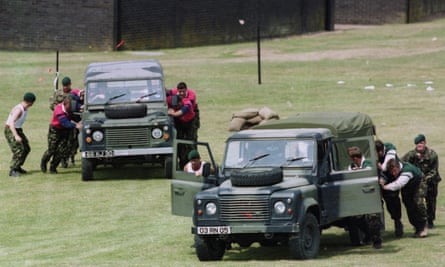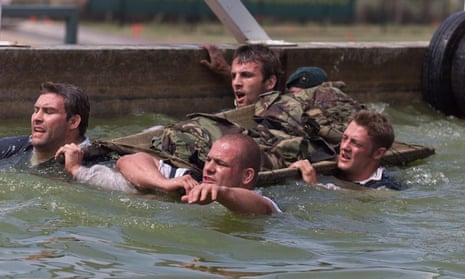As Eddie Jones prepares to mutter “G’day” to the reception staff at Twickenham and starts his search for the men to lead England forward, it will be fascinating to see in which direction he sets out. Identifying a captain, for a start, will require much careful thought, with Uncle Tom Cobley and virtually all his relatives having already been proposed. The absence of a unanimous favourite is a telling detail in itself.
Because as he sifts the assorted merits of Chris Robshaw, Dylan Hartley, Joe Launchbury, Tom Wood, Mike Brown, Maro Itoje, and Tom Croft – why not Croft, a double British Lion and now fit again? – Jones will swiftly be reminded that picking his starting XV followed by his captain is the only way forward. Even then he cannot be entirely sure. Great rugby captains are not always obvious prior to their installation.
Some argue that captaincy doesn’t really matter as much these days. Leicester’s win over Bath at Welford Road on Sunday was a good example; the Tigers still won despite the fact their nominated captain, Mathew Tait, limped off in the opening minute. In the closing moments, furthermore, the Bath head coach, Mike Ford, could be seen and heard fuming after his son George ignored orders to go for the posts late-on, with a bonus point at stake. So much for relying on on-field decision-making in the heat of battle.
Exeter also lost their captain, Jack Yeandle, inside the first quarter against Harlequins and were victorious. Rather than Robshaw, fiercely defended beforehand as an inspirational figure by his director of rugby, Conor O’Shea, Quins were captained by Danny Care. Confusing, isn’t it? The best captain anywhere in sport last weekend turned out to be Leon Smith, who did not hit a single ball in Great Britain’s historic Davis Cup triumph.
It is not only the canny Smith’s success in reviving a struggling team, however, that should interest Jones. If English rugby has any sense it should also put in a call to the Royal Marines’ commando training centre in Devon and ask about the possibility of a visit.
Some of us were lucky enough to be invited along last week and a hugely thought-provoking exercise it proved to be.
Among our number, for a start, were two notable rugby men with first-hand knowledge of marine life. One was Richard Sharp, the former England fly-half who did his national service at Lympstone in the late 1950s; the other was Tony Rowe, the chairman of Exeter Chiefs, who joined the Royal Marines band as a 15-year-old drummer and bugler. Given Sharp went on to captain his country and the canny Rowe has helped drive the Chiefs from relative obscurity to second place in the Premiership in the space of a few years, the pair are good adverts for the benefits of a spell in uniform.
Both enjoyed going back down memory lane and spending a couple of hours with their modern-day successors. It was frequently apparent we were watching a breed apart. Dozens of young trainee officers completed rapid laps in the pool while willing recruits simultaneously jumped off the top board loaded down with full kit, weapons included.
Outside others were straining every sinew to complete the military world’s most famous assault course inside the requisite 13 minutes. More than 70 marine personnel alone have lost their lives in conflicts since 2000 but the relentless determination to be the best they can possibly be – and help others do likewise – shone through repeatedly.
This is not to say rugby players are unfit, or indeed that sport in any way compares to real conflict, particularly in current times. What struck a particular chord, however, were the four key traits every commando is expected to possess: courage, determination, unselfishness and cheerfulness in the face of adversity. Coincidentally, those are precisely the qualities required by international rugby players; cheerfulness in the face of adversity is pretty much the game’s unofficial motto.
Under Stuart Lancaster, England were hardly short of military inspiration, even naming their weekly defensive award after Arthur Harrison, the only England rugby international to have been awarded a Victoria Cross. As Clive Woodward found in 1999, though, taking the national team down to Lympstone and giving them a first-hand look at the kind of commitment required to be a marine has a more direct impact. A similar sense of elite culture became increasingly prevalent within the England squad over the next four years, to the point where players were ultimately chosen on the basis of whether, like the marines, their colleagues would be prepared to jump out of a helicopter with them.

As it happens, Launchbury’s father is a former Royal Marine; the Wasps forward is still young but possesses the inner steel to be a national captain one day, if not right now. Maybe people are looking down the wrong end of the telescope; what English rugby really needs is not a solitary captain but rather a wider range of trained leaders, whether or not they wear an armband. Woodward once said the marines had identified inside two days which individuals in his squad they would not be comfortable going into battle with. It was hardly a coincidence that the game’s best referees visited Lympstone before this year’s World Cup. If Jones ever fancies fast-tracking his selection process, he should head to Devon.
Winter rules
It is around this time of year that the difference between northern and southern hemisphere rugby becomes most starkly apparent. The former Wallabies captain James Horwill told me last week he did not play in a single wet-weather game for Queensland Reds in this season’s Super 15 competition; on Saturday, playing for Harlequins at a storm-lashed Sandy Park, he effectively found himself playing a different sport. Rugby still needs to accommodate all shapes and sizes but World Cups are not staged in freezing monsoons and too much of the Premiership so far has unfolded at 33rpm rather than the 45rpm we witnessed from the world’s best sides a few weeks ago. Everyone has their views on the desirability of a global season but, at elite level, it will surely happen at some stage. Playing – and watching – modern-day elite rugby in the darkest, foulest days of a European midwinter feels ever more old-fashioned.
Worth watching
The Dubai Sevens. The biggest season in the history of seven-a-side rugby is about to commence, culminating with Olympic recognition for both sexes in Rio next August. The HSBC World Rugby Sevens series kicks off this weekend in Dubai and tournaments will be staged in Sydney, Cape Town, Vancouver, Singapore and Paris this season. To add further spice, a sprinkling of big-name 15-a-side players will also be involved in the hope of making it to Rio: Sonny Bill Williams is scheduled to join the New Zealand squad from January onwards, while Henry Speight is in Australia’s squad for Dubai.

Comments (…)
Sign in or create your Guardian account to join the discussion